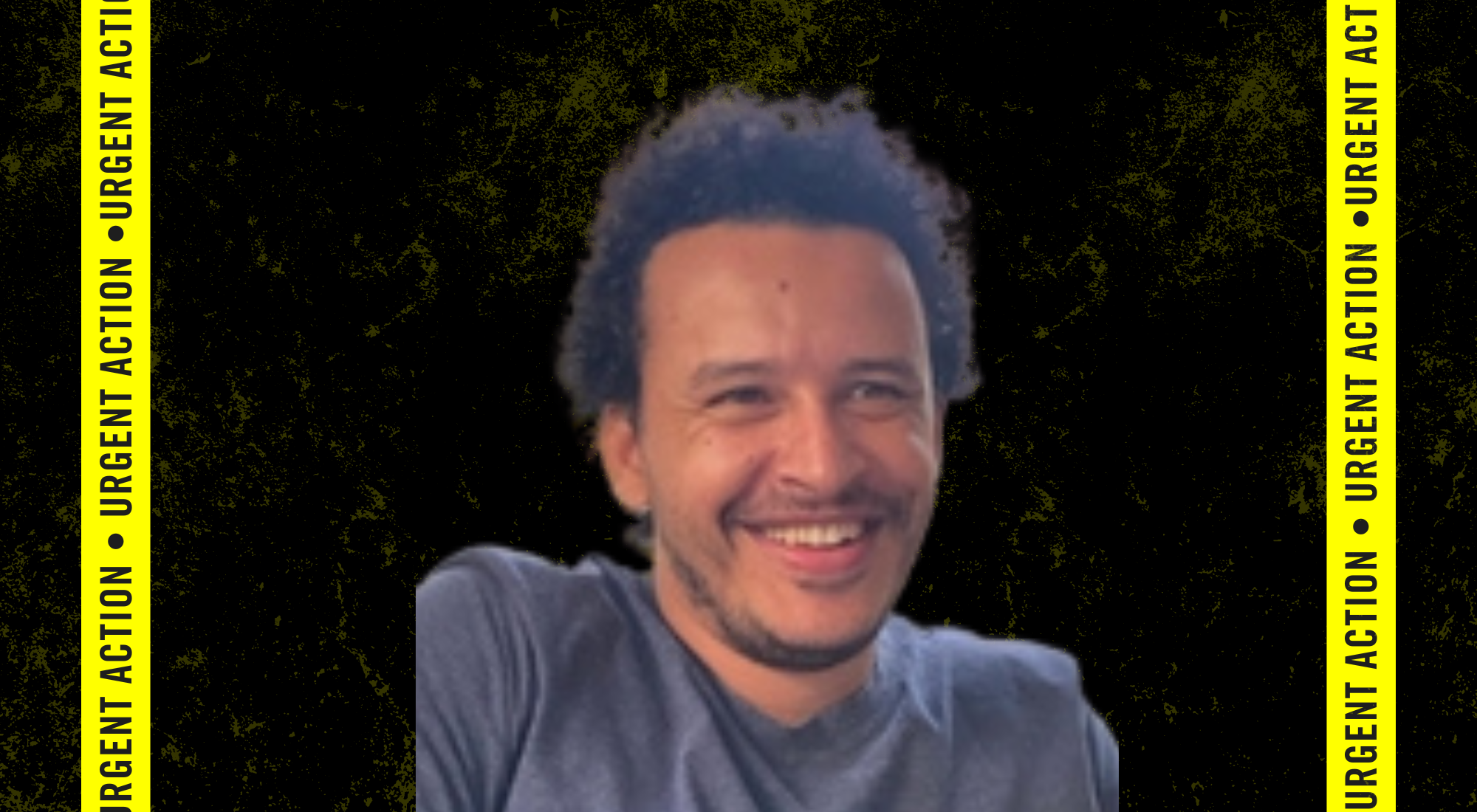On June 26, 2024, Egypt’s Emergency State Security Court sentenced Mahmoud Hussein to three years in prison. He was arrested for wearing a T-shirt that protested against torture. Mahmoud, also known as the “T-shirt detainee,” was arrested after the verdict. He is now serving the remainder of his sentence, despite already spending two years and ten months in pretrial detention.
Mahmoud is currently held at El Marg police station in Cairo. Detainees there are banned from receiving visits from family and lawyers. The Egyptian authorities must release Mahmoud Hussein immediately and unconditionally. His detention is solely for exercising his human rights.
Here’s what you can do:
Write to the President of Egypt urging him to:
- Quash Mahmoud Hussein’s unjust conviction and sentence, and immediately release him from arbitrary detention.
- Ensure that, pending his release, he has access to his family, lawyers, and adequate healthcare, and that he is protected from torture and other ill-treatment.
- Hold him in conditions that meet international standards for the treatment of prisoners.
- Conduct an effective, independent, and impartial investigation into reports of torture and other ill-treatment during his first arrest in 2014.
Write to:
President Abdelfattah al-Sisi
Email: p.spokesman@op.gov.eg
X: @AlsisiOfficial
Salutation: Your Excellency:
And copy:
His Excellency Ahmed Abdallah Ibrahim HAFEZ
Ambassador
Embassy of the Arab Republic of Egypt
454 Laurier Avenue East
Ottawa, ON K1N 6R3
Tel: (613) 234-4931, 4935 Fax: (613) 234-9347/234-4398
Email: egyptembottawa@gmail.com
Arrest and torture of Mahmoud Hussein
On January 25, 2014, then 18-year-old Mahmoud Hussein was arrested by security forces in Cairo. He was returning home from protests marking the third anniversary of the “25 January Revolution” when he was stopped at a checkpoint in the El-Marg neighborhood. Mahmoud was wearing a T-shirt with the slogan “A Nation without Torture” and a scarf bearing the emblem of the January 25 Revolution. This led to his arbitrary arrest.
Amnesty International documented how following his arrest, officials from the National Security Agency (NSA) subjected Mahmoud to severe torture. They beat him and used electric shocks on his hands, back, and testicles. Under this torture, he was forced to “confess” to false charges, including belonging to a banned group and possessing weapons.
His coerced confession was recorded on video. Despite his claims of torture, the prosecutor did not order an investigation or a forensic examination. Mahmoud was transferred to several prisons, where he continued to suffer beatings, leaving him with chronic health issues.
Life after release and renewed detention
Mahmoud Hussein was eventually released on bail in March 2016 after enduring years of pretrial detention. The torture he experienced left him dependent on a crutch for walking, and he underwent two hip replacement surgeries. After his release, Mahmoud tried to rebuild his life by starting a small business producing T-shirts. He also sought medical treatment and counseling and was engaged to be married.
However, Mahmoud’s freedom was short-lived. In 2023, amid a wave of arrests targeting critics and the relatives of dissidents, he was arrested again. He is currently detained at El Marg police station in Cairo, held in overcrowded and inhumane conditions with no access to healthcare or visits from his family.
Widespread repression in Egypt
Mahmoud Hussein’s case is not isolated. Thousands of individuals in Egypt are arbitrarily detained simply for exercising their human rights. These detainees include human rights defenders, political activists, journalists, lawyers, and others who have been subjected to unfair trials or no legal proceedings at all. In 2023, although 834 political prisoners were released, three times as many were arrested.
The Supreme State Security Prosecution (SSSP) has played a key role in this repression, interrogating over 2,500 suspected critics or opponents on trumped-up charges. They frequently renew pretrial detention orders without allowing detainees to challenge their imprisonment.
A common practice known as “rotation” allows authorities to keep individuals in detention indefinitely, even after they have served their sentences or been ordered released by courts.
Mahmoud Hussein’s renewed detention is a stark reminder of the ongoing human rights crisis in Egypt. Despite brief moments of freedom, many continue to suffer under a repressive regime that shows little regard for justice or human dignity.
Please take action as soon as possible until November 7, 2024! The UA will be duly updated should there be the need for further action.




























